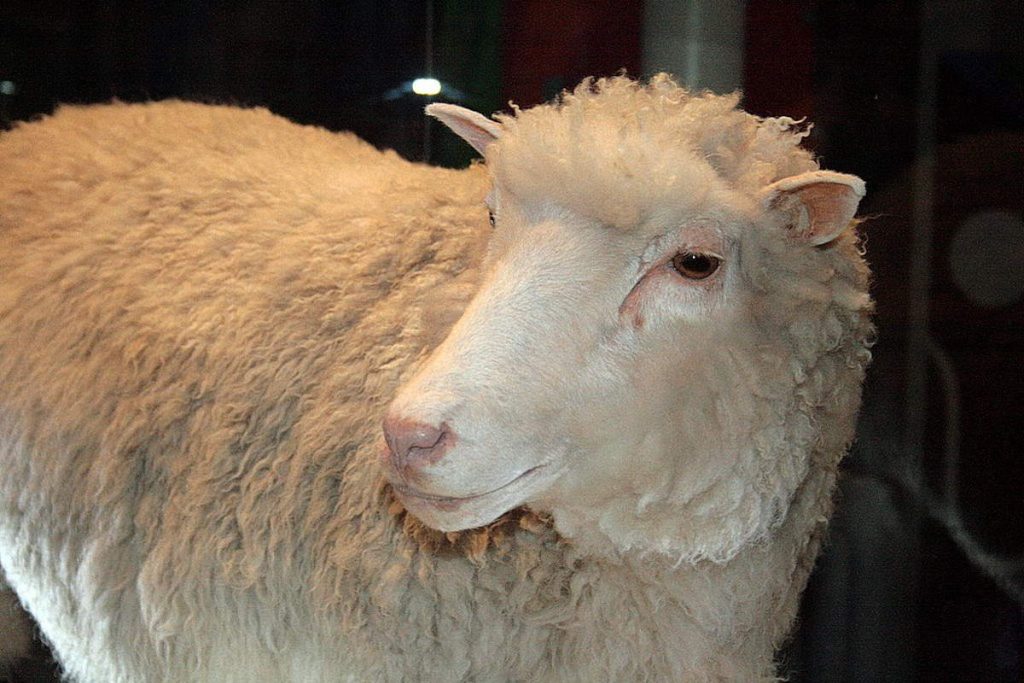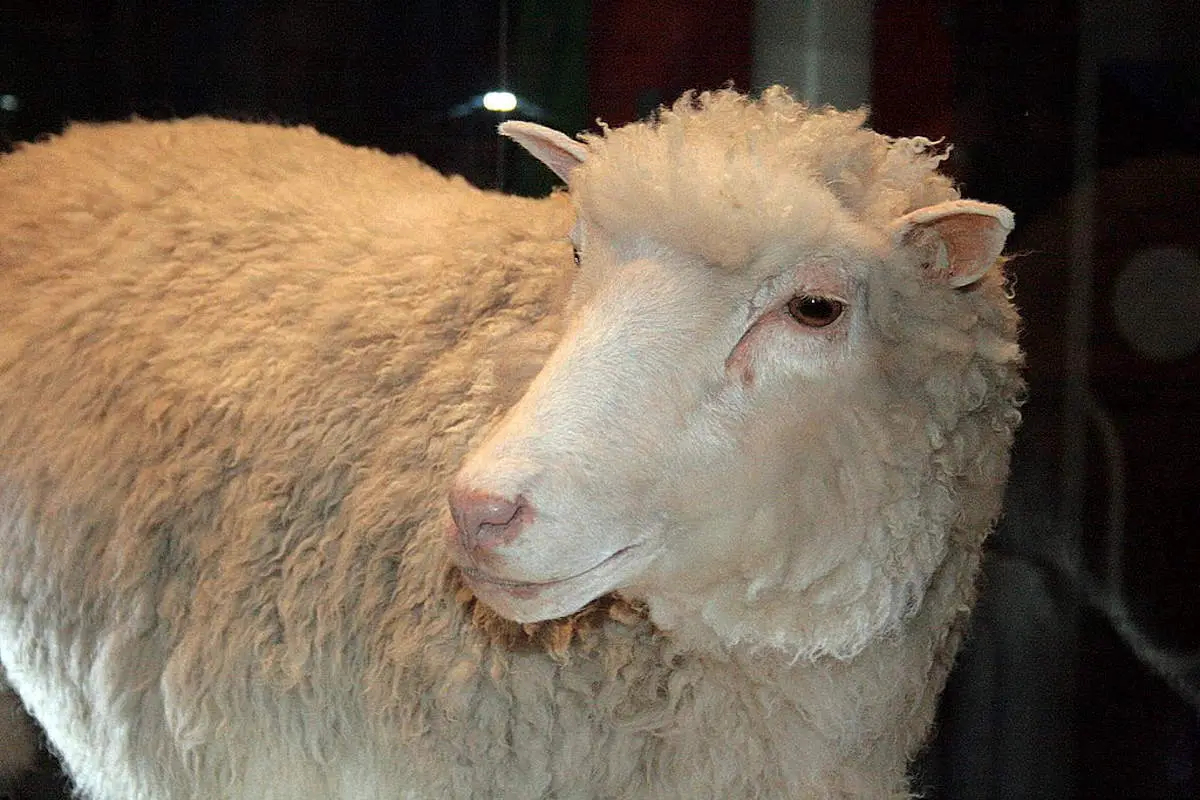On July 5, 1996, a female sheep named Dolly, the first mammal to be cloned from an adult cell was born. Scientists from the Roslin Institute (an animal sciences research institute at Easter Bush, Midlothian, Scotland) in Scotland successfully cloned Dolly using the process of nuclear transfer from a cell taken from a mammary gland.
Today’s (July 5) story of what happened this day in Science, Technology, Astronomy, and Space Exploration history.
Dolly the sheep, the first mammal cloned from an adult somatic cell
Dolly (July 5, 1996 – February 14, 2003) was a female Finnish Dorset sheep. Contrary the popular belief, she was not the first animal to be cloned. That title goes to another ship cloned from an embryo cell and born in 1984 in Cambridge, UK.
At The Roslin Institute, where Dolly was cloned, two other sheep, Megan, and Morag had also been cloned from embryonic cells grown in the lab.
Dolly was the first mammal cloned from an adult somatic cell. Her birth proved that specialized cells could be used to create an exact copy of the animal they came from.
According to the Roslin Institute’s “The Life of Dolly” webpage, Dolly was so important because “Her birth proved that specialized cells could be used to create an exact copy of the animal they came from. This knowledge changed what scientists thought was possible and opened up a lot of possibilities in biology and medicine, including the development of personalized stem cells known as iPS cells.”
Dolly was announced to the world on February 27, 1997. She immediately gained a huge amount of attention in the media.

Apart from the occasional media appearance, Dolly lived her entire life at the Roslin Institute in Midlothian. She lived a normal life with other sheep.
She even had a total of six lambs with a Welsh Mountain ram called David. Their first lamb, Bonnie, was born in April 1998, twins Sally and Rosie were born the following year, and triplets Lucy, Darcy, and Cotton in 2000.
Unfortunately, after giving birth to her last lambs in September 2000, it was discovered that she had become infected by a virus called Jaagsiekte sheep retrovirus (JSRV), which causes lung cancer in sheep. Other sheep at The Roslin Institute had also been infected with JSRV in the same outbreak.
In 2001, at the age of four, was diagnosed with arthritis after farm staff noticed her walking stiffly. This was treated with anti-inflammatory drugs.
Dolly continued to have a normal quality of life until February 2003, when she developed a cough. A computerized tomography (CT) scan showed tumors growing in her lungs. Scientists decided to euthanize her rather than risk her suffering.
Dolly was put to sleep on 14th February 2003, at the age of six.
A post-mortem examination indeed showed she had a form of lung cancer called ovine pulmonary adenocarcinoma, also known as Jaagsiekte, which is a fairly common disease of sheep and is caused by the retrovirus JSRV.
The scientists of the Roslin Institute stated that they did not think there was a connection with Dolly being a clone, and that other sheep in the same flock had died of the same disease. According to the scientists, such lung diseases are a particular danger for sheep kept indoors, and Dolly had to sleep inside for security reasons.
After her death, The Roslin Institute donated Dolly’s body to the National Museum of Scotland in Edinburgh. She is currently on display in stuffed form.
July 5 in Science, Technology, Astronomy, and Space Exploration history
- 1996: Dolly, the first mammal cloned from an adult cell was born.
- 1966: AS-203, the first Apollo orbital mission was launched.
Sources
- The Life of Dolly on the Roslin Institute (University of Edinburgh) website
- Dolly (sheep) on Wikipedia
- How Many Elephants are Left in the World in 2025? - August 17, 2025
- Moon Landings: All-Time List [1966-2025] - February 2, 2025
- What Is Max-Q and Why Is It Important During Rocket Launches? - January 16, 2025
